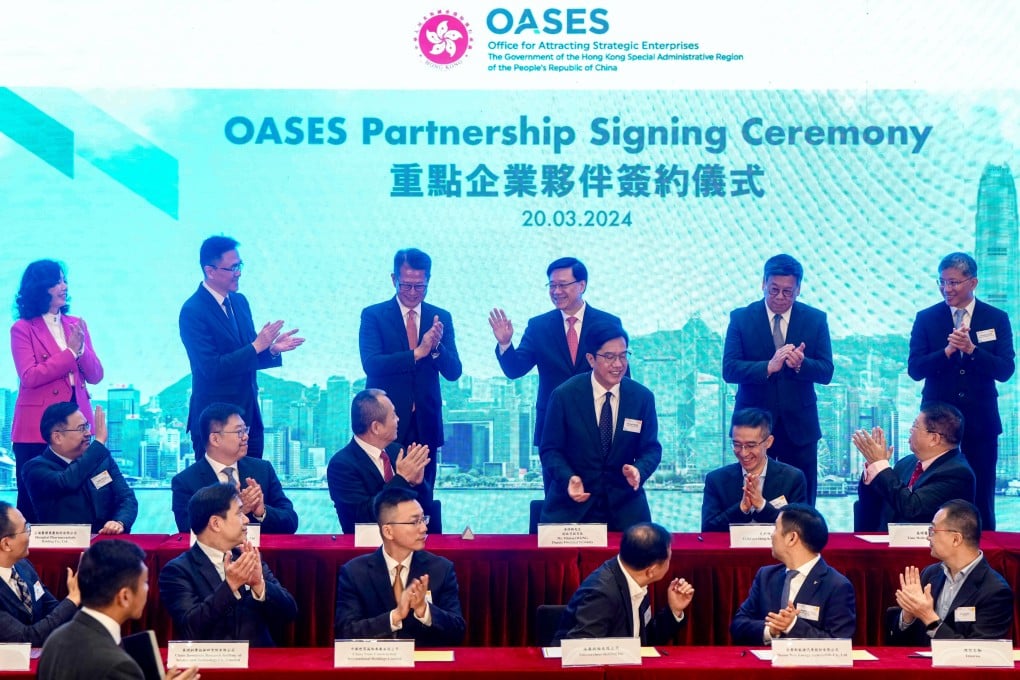Hong Kong welcomes 19 companies from mainland China, US to set up or expand locally in latest bid to promote I&T development
- Signing ceremony held a day after domestic national security law passed, which authorities say will not affect regular business activities or international exchanges
- Among all 49 companies that have now signed up, around three-fourths are from the mainland and the others from overseas

Four enterprises told the Post the legislation would provide a stable and certain operating environment for them to develop their business in Hong Kong.
“Their presence here will create an important momentum and help to attract a wealth of partners and related companies to Hong Kong. In turn, they will bolster our fast-rising innovation and technology sector,” Lee told the ceremony at government headquarters.
“I have confidence that they will continue to thrive here in Hong Kong. And as we all know, Hong Kong is the only city in the world that converges both the China advantage and the global advantage under the ‘one country, two systems’ [governing] principle.
“Hong Kong serves as a superconnector and super value-adder for international companies eager to enter the Chinese market and for mainland Chinese companies willing to expand their global presence.”